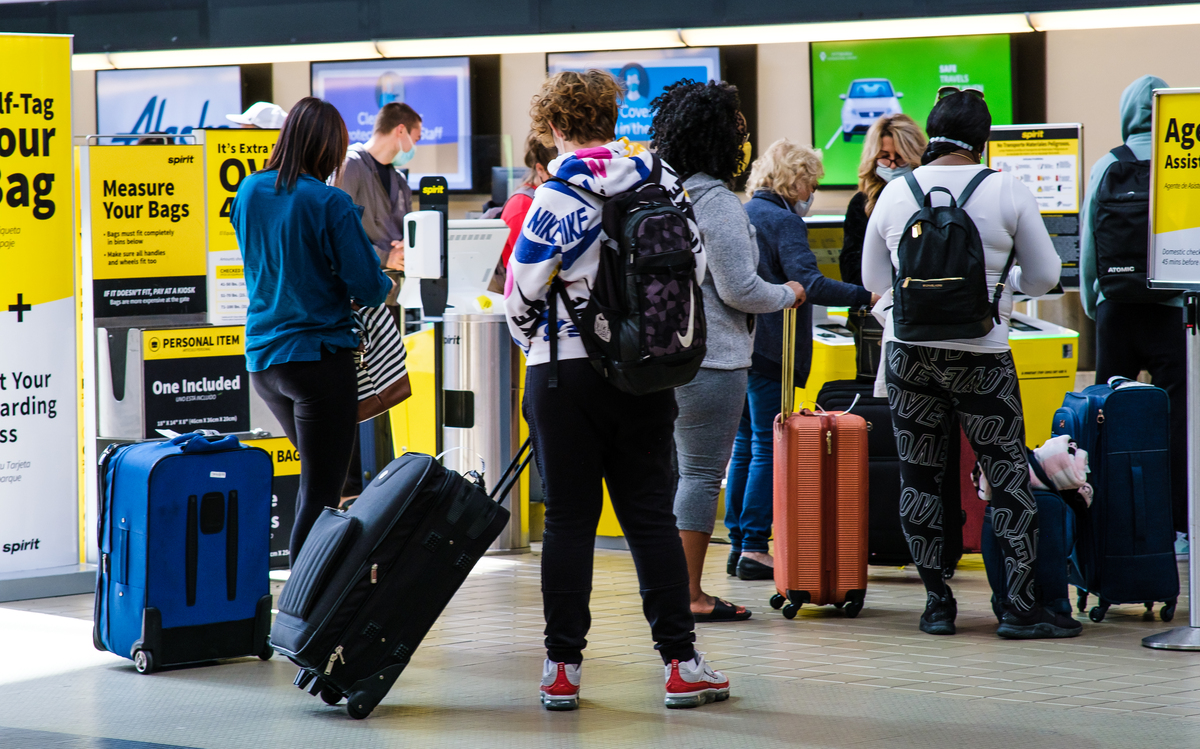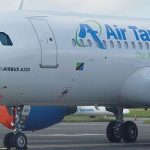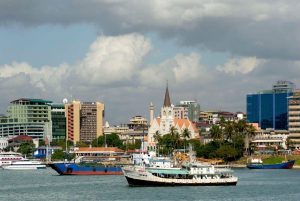The CEO of Delta Air Lines expects an ‘onslaught of travel all at once’ in less than two weeks, when the US government will lift COVID-19 restrictions on travelers from 33 countries who show proof of vaccination.
‘There will be lines, unfortunately,’ said Delta head Ed Bastian at a travel conference hosted by the US Travel Association on Tuesday, adding that things are going to be ‘a bit sloppy at first.’
On November 8, non-US citizen travelers from 33 countries – including the UK, India, China, Brazil, Ireland, Iran and South Africa – will be allowed entry in to the US with proof of vaccination.
Previously, only US citizens were allowed to enter the US from those countries.
It’s not clear how much travel volume will rise. The number of people passing through TSA has already been inching closer to pre-pandemic levels in recent months.
President Biden announced the travel reopening on Oct. 15, citing the rising availability of vaccines and US efforts to distribute them globally, but provided more official guidelines Monday.
Airline staff will be responsible for matching the name and date of birth to confirm the passenger is the same person reflected on the proof of vaccination, according to the White House.
They’ll also have to determine that the record was issued by an official source and review that the vaccine received meets the CDC’s standards.
Children under 18 will not need to show proof of vaccination, but children ages 2 to 17 will need a negative test to enter.
The test will have to be taken within three days of departure if traveling with a fully vaccinated adult or within one day if traveling with an unvaccinated adult.
A small amount of unvaccinated, non-US citizen adults will be allowed to enter the US, including those who are granted medical, humanitarian or emergency exceptions and those who are participating in COVID-19 clinical trials.
Unvaccinated US citizens will now have to provide a negative test taken within one day of departure.
The US will accept the three vaccines used in the US – Pfizer, Moderna and Johnson & Johnson, along with China’s Sinovac and Oxford University’s AstraZeneca.
Russia’s Sputnik V vaccine will not be accepted because it hasn’t been approved by the WHO, which cited concerns over its manufacturing practices at production plants in Russia and whether the vaccine can be produced at a consistent standard, according to the Washington Post.
Travel is up substantially compared to the beginning of the year, when it was down by more than 50 percent from pre-pandemic levels.
On Tuesday, 1,503,587 people passed through security checkpoints at US airports, according to the Transportation Security Administration, up from just 648,517 in 2020 and inching closer to the pre-pandemic number of 1,910,506 on October 26, 2019.
COVID-19 cases in the US continue to fall after a late summer spike due to the highly contagious Delta variant. The US had a seven-day average of 68, 151 cases on October 26, compared to a summer high of 161,864 on September 1.
Biden’s proclamation will undo some of the earliest COVID-19 travel bans, including the ban from China, instituted by President Donald Trump on January 31, 2020, before the World Health Organization declared the coronavirus a pandemic in March.
About 90 percent of Delta Air Lines workers are vaccinated, Bastian told CNBC earlier this month. In August, the airline imposed a $200-a-month insurance premium on unvaccinated staff.
‘We haven’t done it with a mandate,’ Bastian said on the network’s Squawk Box show.
‘We have done it working collaboratively with our people, trusting our people to make the right decisions for themselves, respecting their decisions, but at the same time avoiding the divisiveness of what the mandate is posing to society.’
Source: Dailymail






